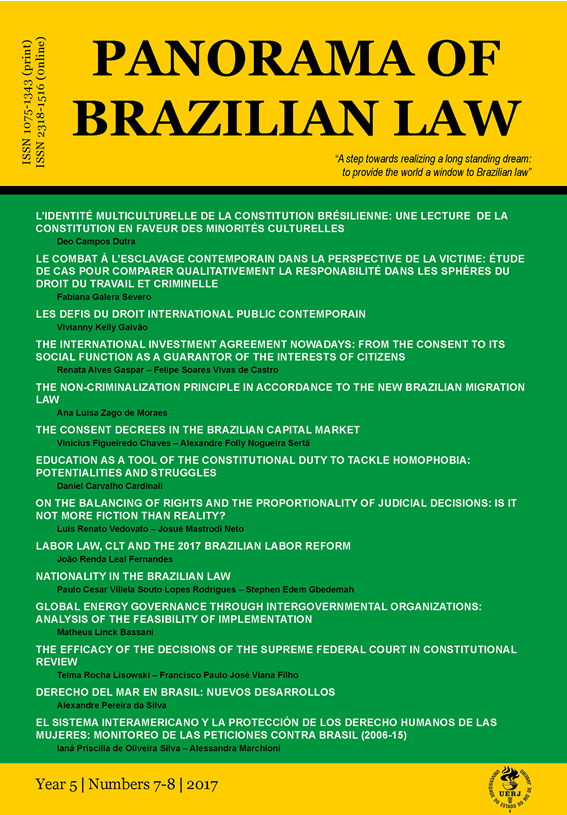THE EFFICACY OF THE DECISIONS OF THE SUPREME FEDERAL COURT IN CONSTITUTIONAL REVIEW
DOI:
https://doi.org/10.17768/pbl.y5.n7-8.p279-303Abstract
In the current constitutionality control system prevailing in Brazil, decisions rendered incidentally to the verdict in a concrete case, which any court has competence to issue, coexist with a direct judgment, these being an exclusive attribution of the Supreme Federal Court. This Court, exercising its role as a guarantor of the Constitution, as defined by the very Magna Carta, represents not only a collegiate court inside the Judiciary structure, but also a true Constitutional Court. The objective of this paper is to analyze the effectiveness of the (un)constitutionality decisions rendered by the Supreme Federal Court, trying to establish, in principle, the differences between those which originate from direct constitutional control from the ones which originate from incidental control, while analyzing primarily the legislative and jurisprudential changes that indicate a tendency of convergence between both.
Downloads
Published
How to Cite
Issue
Section
License
Panorama of Brazilian Law employs Open Journal Access policies.
Authors are fully and exclusively responsible for their submissions.
Authors who publish with this journal agree to the following terms:
- Authors retain copyright and grant the journal right of first publication with the work simultaneously licensed under a Creative Commons Attribution-NonCommercial-ShareAlike 4.0 International License that allows others to share the work on a non-comercial basis with an acknowledgement of the work's authorship and initial publication in this journal and indicating if any changes were made. If you remix, transform, or build upon the material, you must distribute your contributions under the same license as the original.
- Authors are able to enter into separate, additional contractual arrangements for the non-exclusive distribution of the journal's published version of the work (e.g., post it to an institutional repository or publish it in a book), with an acknowledgement of its initial publication in this journal.

